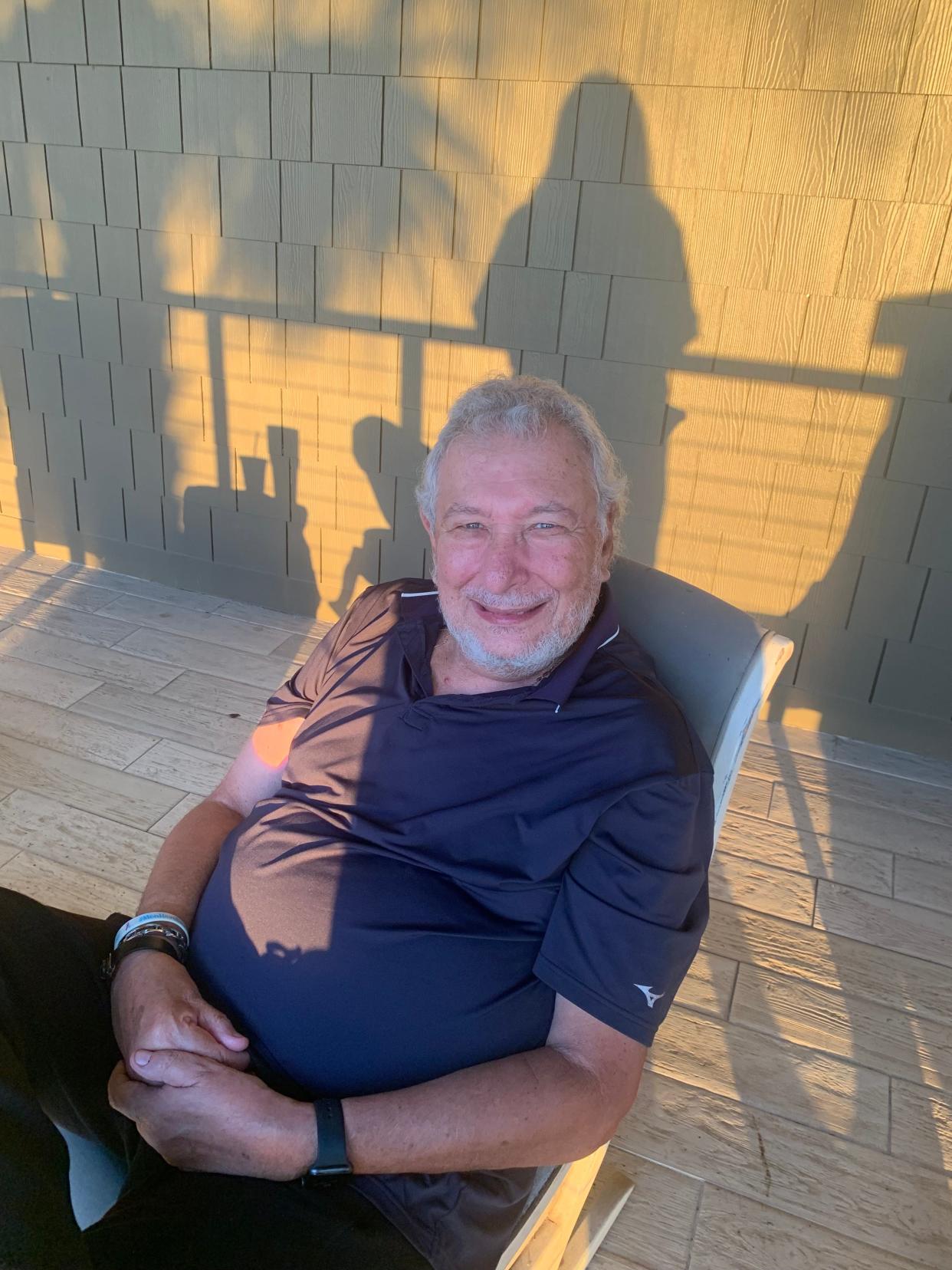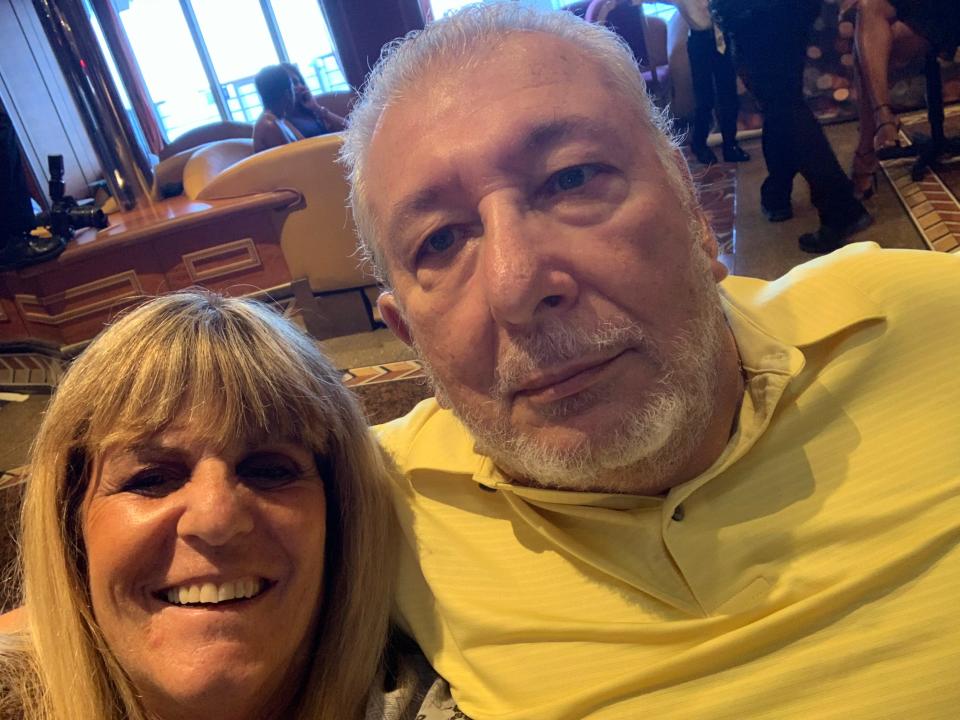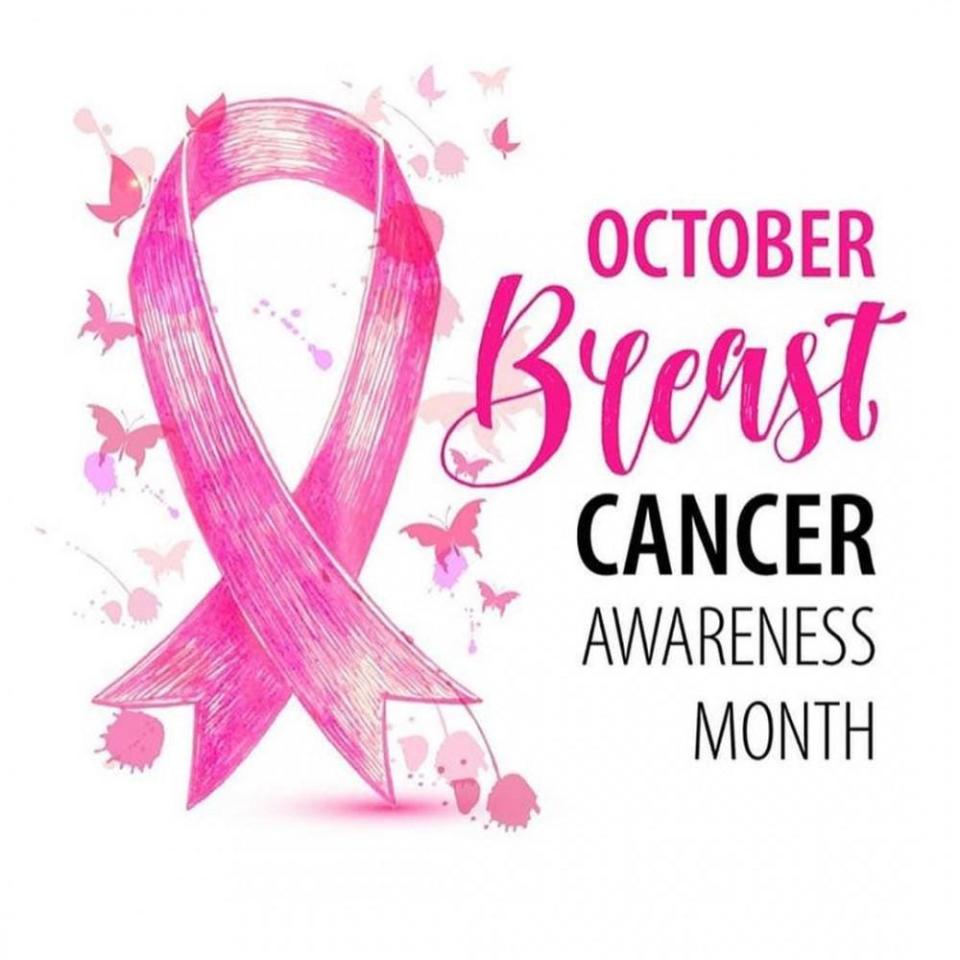Health Matters: Why men need to know their family history with breast cancer

Stu Wein is among the rarest of men — for a couple of reasons.
First, the 74-year-old Boynton Beach resident has spent his entire adult life taking seriously the statistically remote chance that he’d ever be diagnosed with breast cancer.
“Breast cancer runs in my family,” says Wein, a retired electronic industry executive who has been married to wife Susan for 48 years. “Several of my female relatives have had it.”
More health news: New study details how 10,000 steps at brisk pace decreases dementia risk
More cancer news: Learn how FAU researchers are battling cancer at free town hall Wednesday
That’s why once a month for decades he’d perform self-breast examinations in the shower.
He never detected anything suspicious.
Until one day in 2014.
“I felt a lump in my left breast,” he recalls.
He made an immediate appointment with his physician, then underwent a mammogram and ultrasound. Soon thereafter the lump was biopsied.
His vigilance — and quick action — proved justified: The pathology was deemed positive for breast cancer, a disease that around 2,700 men are diagnosed with annually and that will prove fatal for about 530 of them.
Women more likely to be stricken
“Breast cancer is far more common in women,” says Cleveland Clinic Florida oncologist Dr. Thomas Samuel, who practices in Weston and was one of Wein’s doctors during his cancer treatment. “I’d say on average I treat maybe three or four male cases per year.”
According to the American Cancer Society, nearly 290,000 women will be diagnosed with breast cancer this year and more than 43,000 will succumb to the disease.

The U.S. Centers for Disease Control says around 1 in 8 women will be diagnosed with breast cancer at some point in their life. Meanwhile, male breast cancer accounts for fewer than 1% of all breast cancer diagnoses.
Samuel says men — especially as they age because most develop the disease after age 50 — should be on the lookout for any of the following symptoms on “just one breast”:
A firm lump on the breast, often right under the nipple
Nipple pain
Nipple turning inward
Nipple discharge
Sores or a rash on the nipple and areola
A lump in the armpit
Changes to the breast skin (irritation, redness, dimpling, puckering)
Change in the size or shape of the breast
Because male breasts typically contain so much less fatty tissue than female breasts, lumps are usually detected in earlier stages of the disease.
“The most important thing for men is to not ignore these symptoms,” Samuel says. “As long as it’s detected early male breast cancer is treatable and survivable.”
Treating male breast cancer
Because there’s not a lot of research data on male breast cancer, treatment options are similar to what’s prescribed for female patients: surgery, chemotherapy, radiation, hormonal (estrogen-reducing) medication.
The first three protocols were how Wein was treated.
“I had a full mastectomy of my left breast,” he recalls. “It took about a month to recover from that surgery.”
Next, he underwent 30 sessions of radiation, scheduled five times per week for six straight weeks.
Other than minor skin irritation, he didn’t notice any side effects.
And finally, he underwent four sessions of chemotherapy that were scheduled three weeks apart.
“I was very fortunate because I didn’t suffer any side effects with the chemo either,” Wein says.
So while Wein’s treatment was blessedly standard and uneventful, there was one notable development during his chemo cycle that became a first in Samuel’s career: Susan Wein was diagnosed with early-stage breast cancer, so “the Weins became the first husband and wife I’d ever treated for breast cancer — and nearly simultaneously!”
Because breast cancer also runs in Susan’s family, she’d always been diligent about undergoing her annual screenings.

To treat her cancer, she did a protocol similar to Stu’s — surgery (lumpectomy), radiation, chemo — and recovered just as quickly.
As she told Miami TV station WPLG in 2017, three years after her initial diagnosis, “We're married 43 years, so we share a lot. So, what the hell. People kept asking, 'Are you OK? Are you OK?' I'm fine. He's fine. We're going to continue.”
Both underwent genetic testing, and neither tested positive for the BRCA 1 or BRCA 2 genes.
In 2019, Stu underwent reconstruction surgery because, he says, “I was experiencing numbness on my chest and pain around the scar line.”
For the reconstruction, Stu’s surgeon harvested muscle from Stu’s shoulder and implanted it into his chest.
The Weins have been breast cancer survivors for nearly a decade and, based on his experience, Stu urges everyone, including men, to be as vigilant as he was.
“Do self-exams regularly — at least once a month — or have your significant other do them for you,” he recommends. “You have to be proactive.”
He also has a message for all family physicians: “Please examine your male patients’ breasts during every appointment — because it might just save that man’s life.”

This article originally appeared on Palm Beach Post: What you should know about male breast cancer

